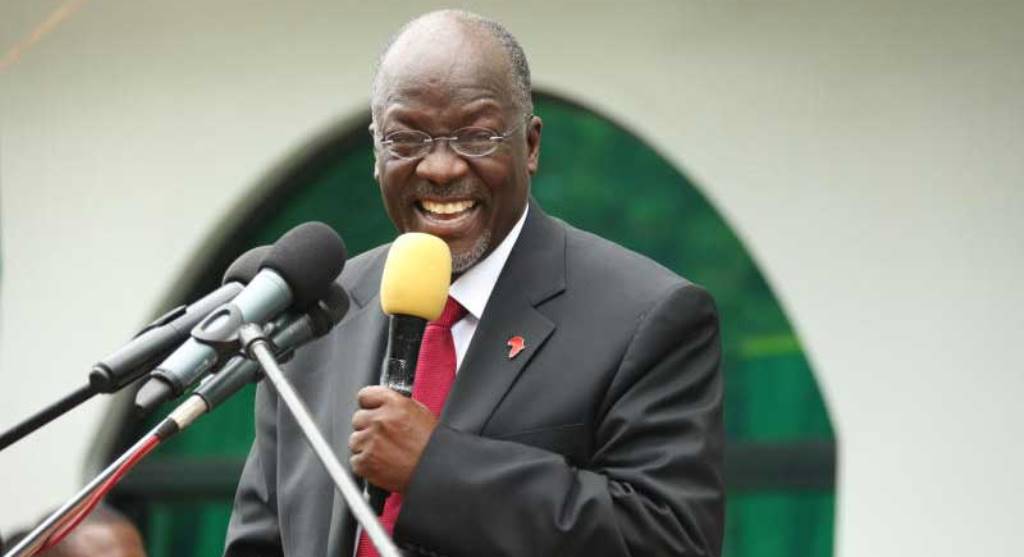PRESIDENT John Magufuli has called for a timely resolve of tax payment disputes, worth over 21trl/-, that remain undetermined in various tribunals for almost two decades.President Magufuli made the call while gracing the Law Day celebrations in Dar es Salaam recently.
He pointed out that apart from 20 tax disputes worth US dollars 247 million (about 569.7bn/-) that are pending before the Court of Appeal, as disclosed by Chief Justice, he was aware of the existence of other cases with tax dispute worth of 21.5trl/-.
“The Chief Justice has explained here about the pending 20 tax disputes worth US dollars 247 million, but I also know there are over 21.5trl/- worth of cases that have lasted for more than 20 years,” the Head of State said.
“Some businessmen have a trend, which is called parking. When he does not want to pay taxes there, he files a lawsuit and then parks it and then he goes on with business. This is also an area which must be seriously addressed,” added Dr Magufuli.
Earlier, Chief Justice Prof Ibrahim Juma (pictured) explained that the Tax Appeal Act allows a taxpayer who fails to agree with the final valuation decision made by the Tanzania Revenue Authority (TRA) Commissioner General to submit his original appeal to the Tax Revenue Appeals Board “If the Authority or taxpayer is not satisfied with the decision of the Tax Appeal Board, the appeal goes to the Tax Revenue Appeals Tribunal.
The Board and the Tribunal are under the Ministry of Finance. The Court of Appeals has been assigned to hear the final appeal from the Tribunal’s decisions,” he clarified.
According to him, during the last year, the Court of Appeals heard a total of 21 appeals with tax disputes worth 41.7bn/-. He was, however, quick to point out that there were a total of 20 cases with tax disputes worth US dollars 247 million and 24.3bn/-that are yet to be resolved.
“These cases will be heard and determined within this year’s court sessions. All of these cases are not more than two years old. So, they are within the required time of determination,” the Chief Justice told the president when updating him on progress made by the Judiciary in determination of various cases.
The Judiciary has given a timeframe within which a court, starting with the Primary Court to the Court Appeal, is required to determine the fresh case or appeal filed by a party.
All Primary Courts are required to determine a fresh case within six months. For District and Resident Magistrate’s Courts, the time given to hear and determine a new case is within 12 months, while the High Court is to determine a case or an appeal before it within two years.
The same applies to the Court of Appeals, which is required to determine an appeal filed within two years. According to the law, tax cases pass four stages of determination before being finally determined.
The TRA Commissioner General is the first person to set in motion the tax dispute process when he issues a tax assessment to be paid by the taxpayer. If the taxpayer is not satisfied by the assessment made, he lodges an objection to the TRA Commission.
Having determined the objection made, the taxpayer, if he is so aggrieved, may appeal to the Tax Revenue Appeals Board to oppose the assessment of tax made.
The Board is composed of three members chaired by a person of rank of Senior or Principal Resident Magistrate. When dissatisfied by the decision given, both the TRA and the taxpayer have the right to appeal to the Tax Revenue Appeals Tribunal, also composed of three members, led by a Judge of the High Court.
Thereafter, whoever feels aggrieved by the decision of the Tribunal among TRA and tax payer, he may, if he so wishes, crossover for appeal process to the Court of Appeal, which is the highest temple of justice as far as determination of case in Tanzania, is concerned.
When officiating the Law Day, to signify the official start of judicial works for 2020/2021 calendar year, the president said he was delighted that for 2019, the judiciary managed to dispose of all the case that were filed within the same year, which is equal to 100 per cent, thus, not producing backlogs.
He pointed out also that through special operations of clearing piling up of cases since 2016, the judiciary has successfully managed to reduce such accumulation of cases with two years old from 12 per cent available at the time to five percent and at Primary Court level the backlog is at zero percent.







